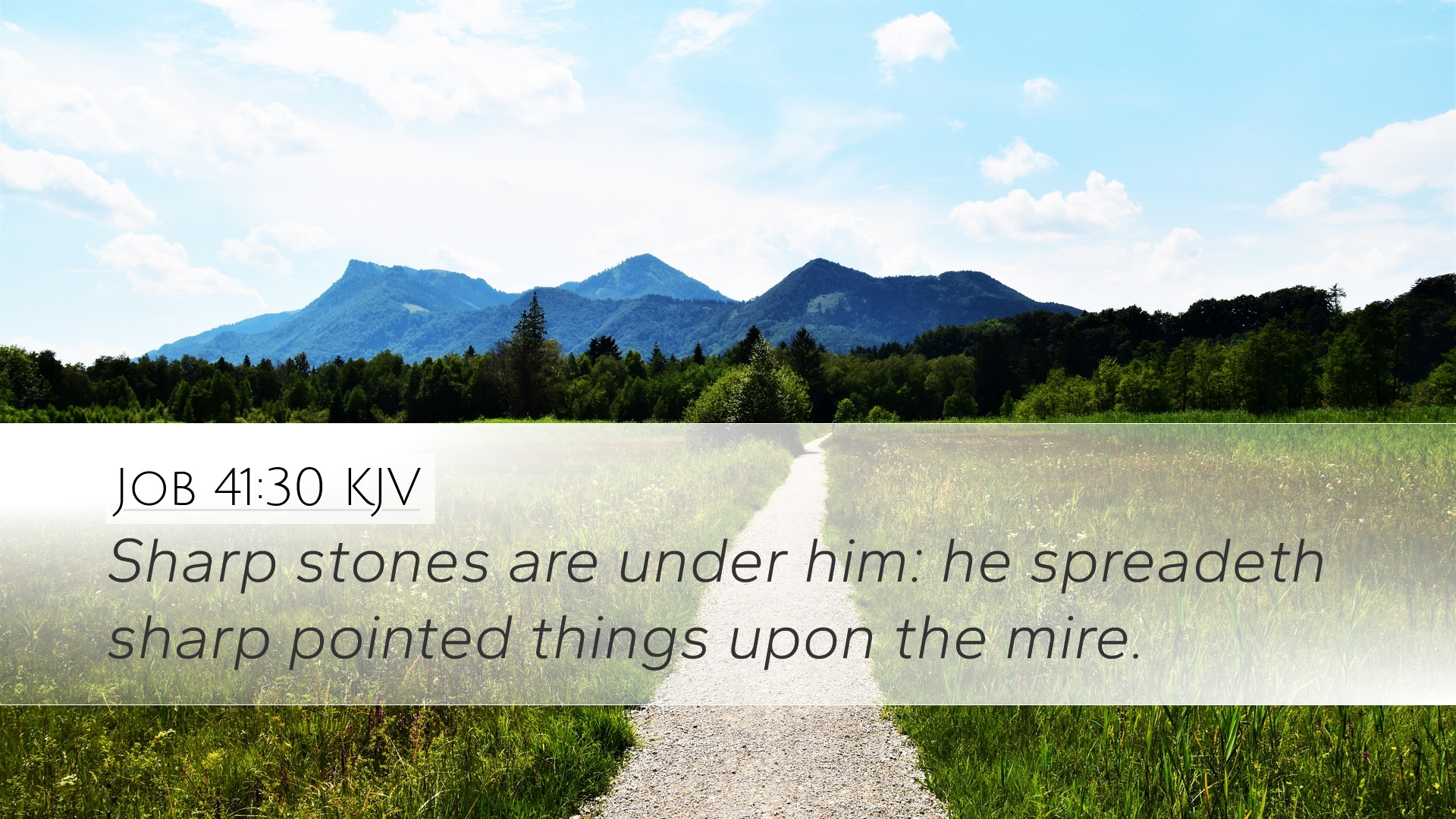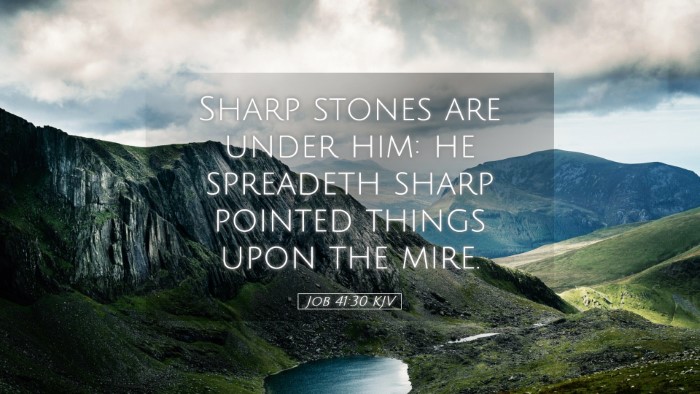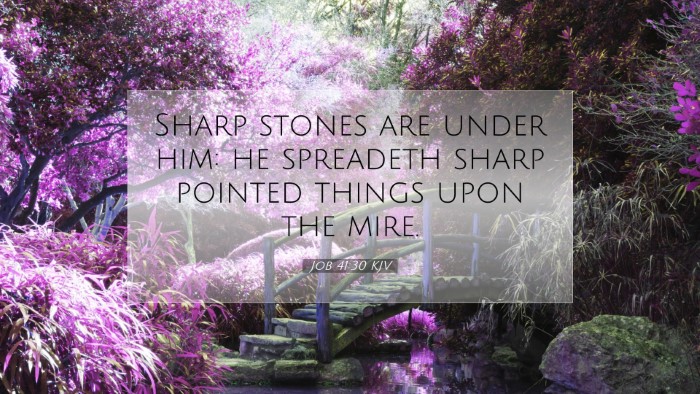Commentary on Job 41:30
Verse Context: Job 41:30 states, "His underparts are like sharp potsherds; he spreads himself like a threshing sledge on the mire." This verse belongs to a larger section where God describes the Leviathan—a fearsome and powerful creature—highlighting His own power and the insignificance of human efforts compared to divine authority.
Commentary Insights
This verse has drawn significant attention from theologians and scholars, particularly regarding its implications for understanding God's sovereignty and the nature of creation. The descriptions of the Leviathan serve multiple purposes, illustrating not only the creature's fearsome attributes but also the awe-inspiring power of God in creating such beasts.
1. Understanding the Leviathan
Matthew Henry: Matthew Henry emphasizes the imagery of the Leviathan as a representation of God's creative power. He suggests that this creature symbolizes chaos and disorder, which God controls effortlessly. According to Henry, the mention of "sharp potsherds" reflects the destructive nature of the Leviathan, reminding readers of the consequences of sin and the wrath of God against human arrogance.
Albert Barnes: Barnes expounds on the significance of the Leviathan being likened to "sharp potsherds." He interprets this as a metaphor for the danger and peril posed by sin. Just as potsherds can injure and cut, so too can the wickedness of humanity lead to destruction. Barnes argues that such vivid imagery serves to instill a healthy fear of God’s judgment among believers and urges them to remain vigilant against spiritual adversaries.
2. The Music of Creation
Adam Clarke: Clarke offers a unique perspective by examining the Leviathan's role in the ecosystem. He notes that God’s various creations, including the Leviathan, have specific functions, promoting balance and order in the world. In this light, Clarke views Job 41:30 as a reminder of man's limited understanding of nature and the divine design behind it. God’s creation includes beings that we may not fully comprehend, yet serve His greater purpose.
Theological Implications
The metaphors within this verse can be connected to broader theological themes, especially surrounding the character of God as sovereign Creator. The Leviathan's might serves as a testament to God's authority and creative prowess. As seen through the lenses of various commentaries, this passage promotes reflection on humility towards God and the recognition of His supreme power over all created beings.
1. God's Sovereignty Over Chaos
The imagery of the Leviathan signifies God's domination over chaos and disorder. Just as He created the beast, He also has the power to control it. This aspect of God's nature invites believers to trust in His governance of both natural and spiritual realms.
2. The Need for Reverence
Recognizing the terror embodied in the Leviathan, as highlighted by Henry and Barnes, should lead to a profound reverence for God. It illustrates the stark reality of God's judgment and the necessity of aligning oneself with His will to avoid the violence that accompanies rebellion against Him.
Practical Applications
- Fear of God: The vivid depictions of the Leviathan encourage believers to cultivate a fear of God, leading to a healthy respect for His power and a desire to walk in obedience.
- Appreciation of Creation: Understanding the role of creatures like Leviathan in God's creation prompts reflection on the complexity of life and the divine order inherent within it.
- Spiritual Warfare: The struggle depicted between the Leviathan and humans can represent the spiritual battles believers face. This awareness should spur believers on to prayerful dependence on God in times of conflict.
Conclusion
In summary, Job 41:30 carries profound implications amidst a complex theological landscape. By synthesizing insights from commentators such as Matthew Henry, Albert Barnes, and Adam Clarke, we grasp a richer understanding of not only the text itself but also the character of God as sovereign, powerful, and purposeful in all His creations. Reflecting on this verse offers a pathway to deeper spiritual engagement and recognition of the intricacies of divine design.


